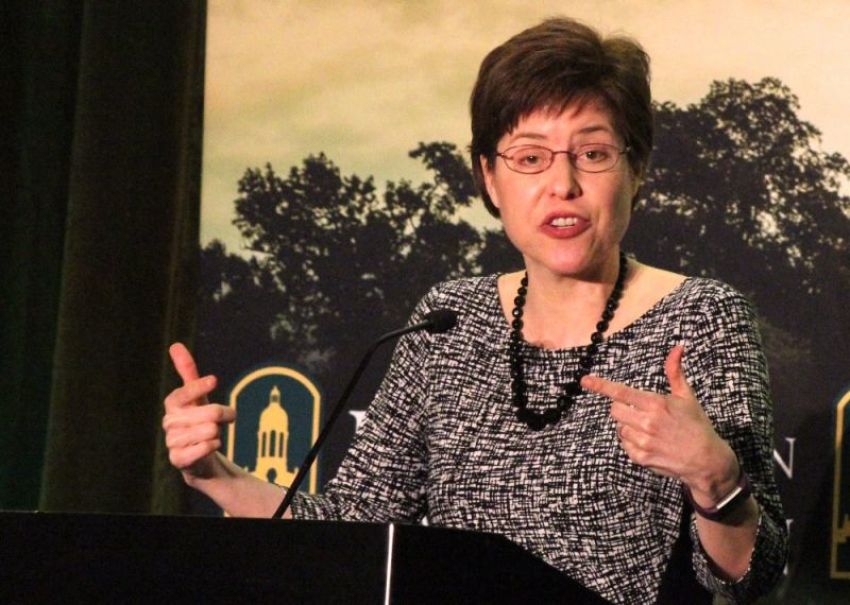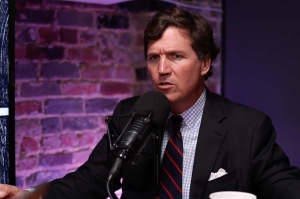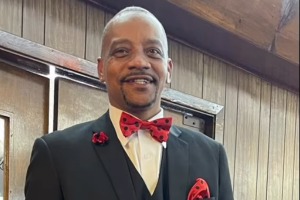Obama's Faith Adviser Criticizes 'Antagonism Toward Faith Groups' That Aren't Totally Progressive

WASHINGTON — Speaking during a panel discussion Tuesday on "religiously motivated dissent," former President Barack Obama's faith adviser, Melissa Rogers, criticized some on the political left for for writing off people of faith who don't subscribe to a full "progressive package of policies."
Rogers, who served as Obama's special assistant and executive director of the White House Office of Faith-Based and Neighborhood Partnerships, participated in a Baylor University Press lunch event highlighting Undomesticated Dissent — a 2017 book written by the the Duke Divinity School theology professor Curtis Freeman.
Rogers, a Baylor grad who previously served as general counsel for the Baptist Joint Committee for Religious Liberty, stated during a question-and-answer-session that both progressive and conservative Christians have challenges to face when it comes to dealing with other actors inside their respective political parties.
Rogers, who now serves as a nonresident senior fellow at the progressive-leaning think tank The Brookings Institution, stated broadly without using names that there is "more friction" today with progressive religious groups.
"There is more of a sense among some progressives of an antagonism toward faith or antagonism toward faith groups that don't totally buy into a progressive package of policies," Rogers said.
Rogers added that the sense of antagonism toward faith groups has created a "new type of difficulty" for progressives.
"I think it's really something that we have to work on," she stressed. "I have certainly seen it through the years and consider it a challenge that has to be faced on the progressive side."
In her main talk during the panel discussion, Rogers explained that religious leaders on both sides of the political aisle can get so enamored with access to powerful people that they "still" their prophetic voices.
She warned against the use of "double standards" by people of faith in situations when they have criticized politicians for certain behaviors but give politicians inside their favored political party a "pass" for similar behavior. Rogers stressed that such "dangers" exist for Republican and Democrats of faith.
Rogers' comments during the panel come as some Christians who consider themselves to be progressive on most political issues are finding their more conservative views on issues like abortion or same-sex marriage to be out of step with the rest of their party.
Rogers told The Christian Post after the panel that some liberal groups don't want to work with other organizations simply because of their opinions on a few certain issues.
"For progressives, sometimes a line is drawn that [we won't] work with groups that might differ from us on reproductive rights or LGBT equality and all of its dimensions," she explained. "I think that is a mistake to decide that we are not going to work with people with whom we have some serious disagreements on issues where we do agree. I think that's for everybody. We need to try to engage with people, develop relationships and try to understand that we are not all going to be on the same page on every issue."
Last April, Democratic National Committee Chair Tom Perez argued that Democratic candidates should support a woman's right to abortion and that such a position is "not negotiable and should not change city by city or state by state."
However, there are many devout Catholic and Christian Democrats who follow very strict religious teachings when it comes to abortion
Perez's statement was denounced by a number of prominent Democratic leaders, including House Minority Leader Nancy Pelosi. In June, Perez met with pro-life Democratic leaders to hear their concerns.
"Our party has always welcomed different opinions on several issues and Tom (Perez) is committed to listening to all Democrats as we work to rebuild our party," Xochitl Hinojosa, DNC communications director, said in a statement to the Catholic News Service after the meeting. "Our party platform makes clear that Democrats trust women to make their own choices about their body and their health, and Tom stands by this."
Later in 2017, the chairman of the Democratic Congressional Campaign Committee chairman, Ben Ray Luján of New Mexico, said that there will be no "litmus test" on abortion. Luján's comment was criticized by pro-choice advocates including NARAL's Mitchell Stille, who argued that "throwing weight behind anti-choice candidates is bad politics that will lead to worse policy."
In 2017, progressive evangelical leader Jim Wallis, the founder of Sojourners social justice organization who also served on the White House Advisory Council of Faith-Based and Neighborhood Partnerships, made similar comments.
Wallis told CP last February that the cultural left's influence on the Democratic Party is a "real problem."
Wallis argued that Democratic nominee Hillary Clinton, who supports late-term and partial-birth abortions, should have taken more steps to appeal to moderates on the issue during her unsuccessful 2018 presidential election campaign.
"I talked to a member of Congress yesterday for lunch who is Catholic and a Democrat and he has a real problem with how his party is dealing with these issues," Wallis said at the time. "He thinks they need to learn from their loss and deal with these issues. There are Democrats who want to deal with these issues differently. They really do but they are not the ones right now controlling the party. That has to change. I have been clear about that."
In Tuesday's panel discussion at the Hyatt Regency on Capitol Hill, Rogers also argued that religious leaders who have access to government leaders must not be so afraid to lose their access that they don't to express dissent on policies and "behaviors" they disagree with.
She asserted that if religious leaders don't voice their opinions even when it might be unpopular in the eyes of the government leader to do so, they serve as nothing more than "lap dogs" for administrations.
While evangelical leaders have received much criticism for not publicly condemning the immoral shortcomings of President Donald Trump, Rogers said that her advice goes for all religious leaders regardless of if they are advising a Republican president or a Democratic one.
"Whether your community leans left or right theologically and politically, these are dangers that lurk for all of us," Rogers told CP. "We need to think about how do we make sure we don't fall into those pits. If we do, how do we get ourselves out? It equally applies to both the right and the left. It just depends on which case you are looking."
Rogers recalled tough debates that were had internally during her time on staff in the Obama administration.
"In every administration there are arguments about a number of issues. That is what President Obama wanted. He wanted a debate about the issues and certainly, we had those about some issues. It served him well when we were able to argue and come from different perspectives," she told CP. "We were working within the administration and when the president spoke, that was the final word."
Rogers indicated that she was able to speak more openly when she served as only an advisor on the White House Advisory Council for Faith-Based and Neighborhood Partnerships.
But once she was hired as executive director of the White House Office of Faith-Based and Neighborhood Partnerships in 2013, things were a bit different.
"When I served on an advisory council under President Obama, I did criticize the administration about the initial policy on the [Obamacare] contraceptive mandate," she said. "That is the way we need to operate when we are outside and not on staff. For staff, it is somewhat different."



























